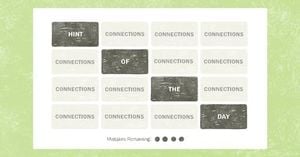OpenAI has recently shaken up the tech world by introducing ChatGPT Search, its answer to Google Search, signaling the potential for significant competition. The launch has been met with much anticipation and speculation as to whether this new implementation could be the beginnings of the end for Google's long-standing dominance over the search engine market.
The tech industry has witnessed dramatic shifts due to the rise of generative artificial intelligence (AI), provoking existing market leaders like Google to innovate their own offerings. Google has already integrated AI-generated answers at the top of its search results—a move ostensibly crafted to retain its substantial market share, reportedly around 88% as of now. Despite Google's adjustments, many experts regard ChatGPT Search as more than just another tool. They speculate it might effectively compete with Google's established and familiar interface.
Tech enthusiasts and analysts alike have expressed curiosity about the effectiveness of ChatGPT Search, especially when juxtaposed against the stalwart search engine. OpenAI's CEO, Sam Altman, publicly lauded the new feature's capabilities and its potential to alter how users engage online. "Search is my favorite feature we have launched in ChatGPT since the original launch! It has probably doubled my usage over the past few weeks," Altman noted on his social media platform.
But users' first-hand experiences reveal mixed results. Early adopters have described the interface as clean and straightforward, akin to Google’s early days before it became cluttered with ads and marketing elements. While ChatGPT Search's ad-free quality offers users the appealing notion of unobtrusive browsing, its functionality has not completely hit the mark. It’s reported as falling short when it attempts to deliver concise, instant answers typically expected from traditional search engines.
According to user feedback, using the search tool can be somewhat challenging. For example, when typed queries tend to have fewer than four words, which account for the majority of Google’s usage, ChatGPT often struggles to deliver accurate or relevant results. Everyday inquiries like “weather tomorrow” or “restaurants nearby” showcase its weaknesses, often resulting not only in incorrect data but also ineffective navigation away from intended web pages. One user recounted trying to check the score of the Denver Nuggets game, only to be misinformed about their standings during the match.
Another aspect where OpenAI appears to trail behind Google is the ability to interpret and react to short, keyword-based searches efficiently. Traditional searches have trained users to seek immediate, straightforward answers. If ChatGPT Search continues to lag here, it may face significant hurdles as users are reluctant to switch from Google, which satisfies their needs flawlessly.
While ChatGPT Search shines when handling longer, more complex questions, its success hinges on enhancing the search's capacity to respond to succinct queries. The AI tool reliably picks up on nuanced prompts but stumbles when confronted with typical keyword-driven searches. An OpenAI spokesperson acknowledged this gap, stating, "With ChatGPT Search, we’ve observed users tending to ask questions more naturally compared to other search tools, but short navigational queries are quite common and important for web search. We plan to improve the experience for these types of queries over time."
This recognition of burgeoning user needs positions OpenAI at a fascinating crossroads, as it grasps the current pitfalls and strives to bridge the gap between users’ expectations and the search engine realities. Moving to strengthen its capabilities could make ChatGPT Search not just a supplementary tool, but potentially the mainstay for online inquiries.
The backdrop of AI advancements, coupled with the relentless push for personalization of search experiences, creates fertile ground for increased competition within the sector. Already, competitors like Perplexity—another AI-powered search engine—are positioning themselves as worthy adversaries against both ChatGPT and Google, citing their own successes as they scramble to reevaluate standard search mechanics.
OpenAI's deployment of ChatGPT Search is part of this broader trend of organizations integrating AI solutions to offer more intuitive interactions and satisfactory user pathways. By announcing partnerships with known content publishers such as the Associated Press and Reuters, OpenAI not only bolsters ChatGPT’s credibility but also helps mitigate concerns about the accuracy of information presented to users.
Despite these promising developments, many industry professionals caution against expecting ChatGPT Search to dethrone Google outright. Its continued reliance on Microsoft’s Bing search engine also raises eyebrows concerning scalability and quality, prompting skepticism about the long-term viability of any switch from Google. ChatGPT’s limitations, especially concerning source reliability along with claims of ‘hallucination’ or errors, have yet to be fully overshadowed by affirmations from upper management or commitment from developers.
Looking forward, OpenAI remains optimistic about refining its search product. With continuous updates and adaptability, the hope among proponents is to see significant enhancements translating to user satisfaction. Whether this ambitious venture nudges Google from its pedestal remains uncertain but presents invigorated possibilities for consumers tired of the ad-driven narratives prevalent across the web today. Until these changes manifest, your friendly neighborhood Google will likely remain the go-to tool for legions of internet users.
Should OpenAI adequately address the shortcomings, ChatGPT Search could become less of an experimental outlier and more of formal competition to traditional search mechanisms. With user trust needing to be nurtured, the road might be long, but with persistent innovation, the new platform could evolve from this early testing ground toward the revolution of internet inquiries.



